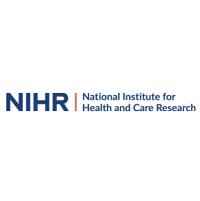Inside the NCVR evolution in the UK

For years, the UK's clinical research landscape held a frustrating truth: costing and contracting for commercial research needed to evolve if the nation was to remain an attractive option for commercial sponsors, the lifeblood of global research.
Enter the National Contract Value Review (NCVR), a bold, system-wide overhaul of how clinical trials are priced and contracted in the UK. Stage one, launched in 2022, firmly established the UK’s commitment to improving its research landscape, by introducing a national resource review while still enabling some local price flexibility - a move which cut the average study set-up time by a third. But that was just the opening salvo. October 2023 marked the dawn of stage two, costing and contracts can no longer be negotiated at site level. This single, streamlined system promised to be music to the ears of sponsors, offering predictability, transparency, and, most importantly, swiftness.
In a recent webinar, sponsored by the National Institute for Health and Care Research (NIHR), a panel of experts – including NIHR head of feasibility and start-up, Laura Bousfield; head of coordination and standardisation, Health Research Authority, Alastair Nicholson; senior clinical trials agreements associate, King’s Health Partners, Laura Faithfull; and director for site management and monitoring (oncology) for AstraZeneca UK, Rowena Sharpe - gathered to discuss the driving forces behind the new NCVR process and its wider implications for commercial research in the UK.
Levelling the playing field
Costing conversations are a crucial part of commercial research. It’s no secret that the resources required to conduct a clinical study come with price tags. The challenge is to make these conversations as straightforward and transparent as possible to ensure that studies can get underway as quickly as possible.
As Bousfield explained: “Every day of a cost and contracting delay blocks patients from accessing research.”
While model contracts and costing templates have existed for nearly two decades, prior to the introduction of NCVR these served primarily as negotiation starting points. Under this system, each site involved in a multi-centre study calculated resource requirements and associated costs in isolation. This often resulted in lengthy cost negotiations as overlapping conversations across sites, with minimal variations, leading to inconsistencies and inefficiencies.
“There have been lots of initiatives over the years – even the introduction of a national costing tool and national contracts,” explained Bousfield. “But moving them into a point where they are tackling costing and contracting delays needed more work and more focus. That’s really where NCVR came from.”
Stage 1 of the process aimed to iron out kinks in the new system, permitting minor changes to prices and contracts at a local level. During this time, those in the research community were able to familiarise themselves with what Nicholson dubbed “a real cultural change” – a national approach to costing and contracting. Once all eventualities had been accounted for, Stage 2 of NCVR locked the doors to local-level negotiations through the use of non-negotiable contracts.
Recommendations published in Lord O'Shaughnessy’s review into commercial clinical trials reinforced the need for a new approach.
“NCVR started before the O’Shaughnessy report, but that review really brought that recognition of the bigger picture to the fore,” explained Nicholson. “Stage 2 of NCVR, the timings of it and what it became were really driven by that central government recognition of the bigger picture need that was set out in the report.”
Addressing the ‘bigger picture need’ outlined in the report aligned with the UK’s ambition to reaffirm its position as a global leader in commercial research.
“From a global perspective, we have dropped down in that ranking of how quickly we have been able to mobilise sites to open to recruitment,” said Bousfield. “Obviously, that impacts the number of studies and the volume of research taking place in England across the NHS and the wider UK. So that is a real driver to do something larger, at scale and at pace. And that is where the passion and the appetite for a national review process has come from.”
Introducing system-wide change
NCVR isn't just a new approach to costing and contracting: it's a catalyst for system-wide change in the UK's commercial clinical research landscape. As Nicholson aptly noted, "NCVR is part of a bigger story." That story involves fostering collaboration, navigating cultural shifts, and, ultimately, reaping the benefits of a more streamlined and efficient research environment.
One crucial element of this transformation is the establishment of a "community of practice". This multidisciplinary group brings together sites across the country to share experiences, address challenges, and identify best practices. Through open dialogue and knowledge exchange, opening the door for all voices to be heard in the costing conversation is instrumental in identifying and addressing differences in approach, ultimately paving the way for a more unified system.
Effective communication and education are paramount in ensuring a smooth transition. Research teams need to be equipped with the knowledge and tools to navigate the NCVR system effectively. As Faithfull, representing the site perspective, highlighted, “Obviously it’s a big change that sites are having to get used to, but people are receptive, and certainly they can see the benefits. It is around how we articulate that benefit to them." By clearly communicating the advantages of NCVR, such as faster study set-up times and increased research capacity, she explained, stakeholders can become active participants in this positive change.
For sponsors, Sharpe emphasised the importance of listening to feedback from sites and communities as NCVR evolves. “As we are the first country to do something like this, we can’t just go to Germany or the US and ask, ‘How did you do this?’” said Sharpe. “Spearheading is fantastic and exciting and important, but it can be messy at times. What we have learned is that the communication routes need to be enforced and used.”
"With any process change, there is a little bit of confusion and pain as we work through the details," she acknowledged. "The more that there is a discussion, the more we hear the collective voice - to understand if we need to make changes as a sponsor."
A step towards research excellence
While still in its early stages, NCVR's impact is already stirring promising ripples across the research community. As Nicholson noted, the response so far has been encouraging, as evidenced by NHS England's decision to make adhering to NCVR a contractual obligation for NHS organisations, over 750 completed reviews, and a median lead site review time of just 35 days [at the time of recording in December 2023]. However, as each of the panellists agreed, this is only the beginning of the journey.
“There has been a lot of prep work to get us, as a UK collective and individual sites, ready for this change and it’s important to continue to make sure that this shift works well and that we get that balance between using this, mandating this, and getting high speed by making sure that our sites get what they need to run our clinical trials, but we are already seeing benefits from this,” said Sharpe. “We are seeing fast set up times from our point of view, seeing that we can have better budget estimation across the patch, so that we can speed up that process.”
During the webinar, concerns about potential bottlenecks, particularly with regards to aligning NCVR reviews with approvals, were highlighted. In response to an audience question on the subject, Bousfield emphasised the importance of timing submissions in relation to the timeline of study activities.
“What we have done with stage 2 of NCVR, is really align that review with the documentation that’s going in with the UK approvals submission,” she said. “Now, we really are trying to push that the timing that the costing goes in is relevant to the timeline of the study and when those activities are happening, and integrating that into the pathway.”
Sharpe echoed this, stressing the crucial role of early engagement in ensuring accuracy and pre-empting downstream issues.
“Early review is going to be really important,” she said. “It may take a little bit longer, but it’s really important to do it right because otherwise we may have incorrect costs filtered down to the rest of the sites, more escalations, and more problems down the line.”
Building towards a bigger picture
The NCVR is, as Sharpe describes it, a “radical” statement of change, a resounding "yes" to the call for a more efficient, collaborative clinical research landscape. But, as panellists clearly emphasised, NCVR is more than just a process; it is a collective ambition that unites research across the UK. For patients, faster trial set-up paves the way for more research and more breakthroughs, meaning swifter access to life-changing treatments.
Its impact extends beyond the UK, rippling outwards to spark a global conversation about country-wide approaches to costing and contracting. For the life sciences industry, this is a paradigm shift, an invitation to embrace a new way of doing business.
System-wide changes like NCVR require buy-in from all stakeholders. NHS England has taken the lead, mandating NCVR for its organisations to unlock the potential for faster trials, greater transparency, and, ultimately, improved patient access to new treatments. However, the responsibility doesn't stop there. The life sciences industry must actively engage with this approach, working together to help shape a system that puts science and patients at the heart of studies in the UK.
As Bousfield explains: “This is the touchpoint through which we can start to build, but that will only happen if we all trust each other, and we’re trying to do this in collaboration and partnership because, ultimately, the goal is getting treatments to patients.”
About NIHR
![]()
The National Institute for Health Research (NIHR) is the nation’s largest funder of health and care research. The NIHR:
- Funds, supports and delivers high quality research that benefits the NHS, public health and social care
- Engages and involves patients, carers and the public in order to improve the reach, quality and impact of research
- Attracts, trains and supports the best researchers to tackle the complex health and care challenges of the future
- Invests in world-class infrastructure and a skilled delivery workforce to translate discoveries into improved treatments and services
- Partners with other public funders, charities and industry to maximise the value of research to patients and the economy
The NIHR was established in 2006 to improve the health and wealth of the nation through research and is funded by the Department of Health and Social Care. In addition to its national role, the NIHR supports applied health research for the direct and primary benefit of people in low- and middle-income countries, using UK aid from the UK Government.











